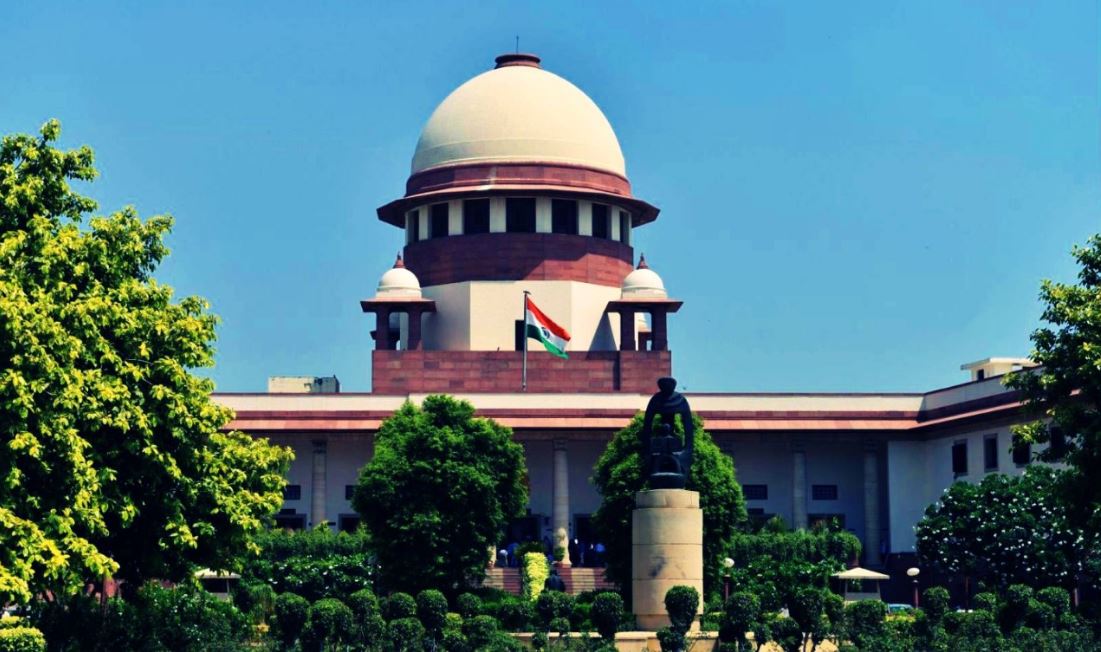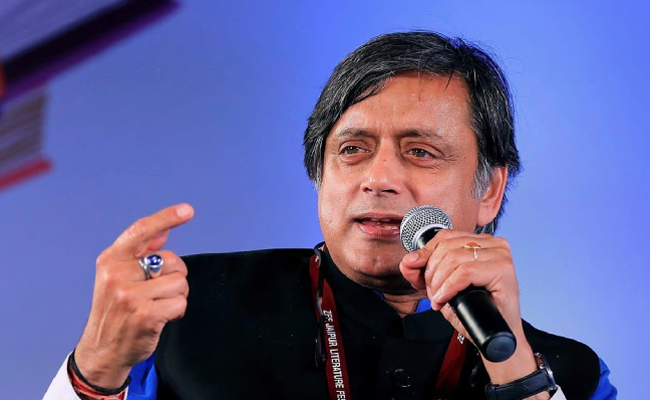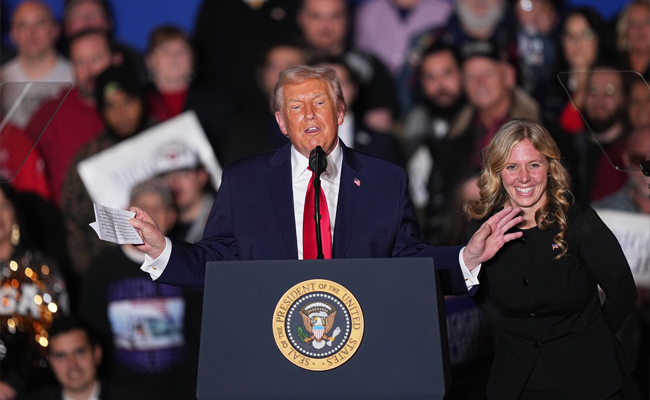New Delhi, Apr 26: The Karnataka government has told the Supreme Court it has taken a "conscious decision" to not continue with reservation on the sole basis of religion as it is unconstitutional and it has therefore scrapped the provision of 4 per cent quota for the Muslim community.
The state government filed its reply to a batch of petitions challenging its two orders dated March 27, scrapping the 4 per cent quota for Muslims in 2B category of the 'Other Backward Castes' and granting benefits of increased quota to Vokkaligas and Lingayats in admissions and appointments to government jobs.
"The state government took a conscious decision to not continue with the reservation on the sole basis of religion as the same is unconstitutional and contrary to the mandate of Article 14 to 16 of the Constitution of India. Therefore, vide two orders dated March 27, 2023, four per cent reservation in favour of Muslim community was deleted and the members of the Muslim community were now allowed to claim benefit of reservation under EWS scheme which is at 10 percent," it said.
On Tuesday, the top court said Karnataka's earlier regime granting 4 per cent reservation to Muslims will continue till May 9, the eve of polling for assembly elections, after the state government sought more time to file its reply. The court will hear the matter again on May 9.
In its reply, the state government said reservation solely on the basis of religion is also contrary to the principles of social justice and the concept of social justice aims to protect those who are deprived and discriminated against within the society.
"Including within the said ambit an entire religion would be an antithesis to the concept of social justice and the ethos of the Constitution. It is humbly submitted that therefore reservation cannot be extended to any community on the sole basis of religion", it said, adding that the provision of reservation on the basis of religion would also be contrary to the concept of secularism.
The state government in a lengthy affidavit said the petitioners have sought to give a "colour to the exercise" in question which is completely baseless.
"The timing of the decision, etc are immaterial without the Petitioners clearly demonstrating that the reservation on the basis of religion is constitutional and permissible. Merely because reservations have been provided in the past on the basis of religion, the same is no ground for continuing the same for perpetuity, more so when the same is on the basis of an unconstitutional principle," it said.
The state government said historically, Karnataka has adopted conscious governance initiatives through affirmative action to address social and economic backwardness and to make public service more inclusive and representative of the population.
It referred to three Backward Classes Commission reports and said as far as the reservation solely on the basis of religion is concerned, it is submitted that the same is not justified.
The state government in its affidavit filed through advocate Shubhranshu Padhi said that the initial inclusion of Muslim community into the category of other backward classes in 1979 was contrary to the recommendations of the first backward class commission headed by LG Havanur.
"The said inclusion has thereafter been continued subsequently primarily on the ground of economic backwardness. It is pertinent to state that the constitutional scheme at that stage did not contemplate reservations to economically weaker sections. The said position has continued up till the Government Order dated March 30, 2002", it said, adding that in contradistinction to the backward castes/classes who were Muslims who were provided reservation in category I, the entire religion has been added in category II B.
The state government added it is pertinent to note that the groups within the Muslim Community who were found to be backward and found mention in Group I of the 2002 reservation order continue to enjoy the benefits of reservation.
READ ALSO: Priyanka Gandhi tries her hands at making crisp dosas at restaurant in Mysuru
"Apart from the same, the State Government created Category II-C and II-D of reservations. The category II-C consisted of communities including Vokkaliga Community which was earlier in the form of group III-A. Similarly there was a newly created II-D group consisting of all those communities from III-B including Lingayat community. The reservation of Category II-C and II-D was provided at 6 per cent and 7 per cent respectively", it said.
The state government said that it was done as it was part of a long standing demand by members of the said communities (Vokkaliga and Lingayat) who have been agitating for the rights of members of their communities and they were also part of the earlier reservation granted in 2002.
"As such, the Petitioner herein has no locus to question the inclusion or grant of benefits to any other community more so those who were not conferred the benefits on the basis of religion. To that extent, the present Writ Petition merits to be dismissed", it said.
The state government said the power to classify a group of citizens as Socially and Educationally Backward Class (SEBC) has to be constitutionally exercised in accordance with the provisions of Articles 14, 15 and 16 of the Constitution of India.
"Assuming for the moment that any of the commissions had recommended for the inclusion of Muslims as Backward castes, the same does not denude the power of the State Government to take a decision in accordance with law. The power there under is a constitutionally conferred power conferred upon the State Government to provide for protection to the Backward Classes," it said.
It said, therefore, the exercise of power to provide for reservations emanate from Articles 15 and 16 and the same can be done by executive instructions, which amount to law within the meaning of Article 13 of the Constitution of India.
At the fag end of its term, the BJP government on March 24 decided to abolish the 4 per cent reservation for Muslims under 2-B category. The 4 per cent was later split into two and distributed among Vokkaligas in 2-C category and Lingayats in 2-D category.
Muslims eligible for quotas were categorised under the economically weaker sections.
The state government's decision has pushed the reservation limit to around 57 per cent now.
Let the Truth be known. If you read VB and like VB, please be a VB Supporter and Help us deliver the Truth to one and all.
Tezpur (PTI): A retired Indian Air Force personnel has been arrested in Assam's Sonitpur district for alleged links with Pakistani intelligence operatives, police said on Saturday.
Additional Superintendent of Police Haricharan Bhumij said preliminary investigation revealed that the accused had shared sensitive documents and information with Pakistani operatives over social media.
Police have seized his laptop and mobile phone.
The devices have been sent for forensic examination, though some data has been deleted, Bhumij said.
The accused was a junior warrant officer in the IAF and had retired in 2002 from Tezpur’s Salonibari base.
He had later joined the electronics department of Tezpur University, but quit.
Bhumij said a case has been registered under the relevant sections of the BNS and a local court has remanded the accused to five days police custody.





